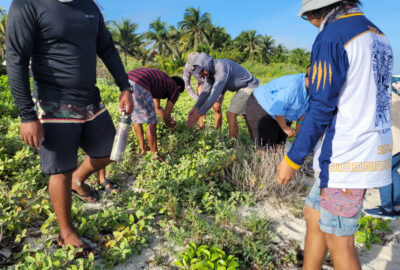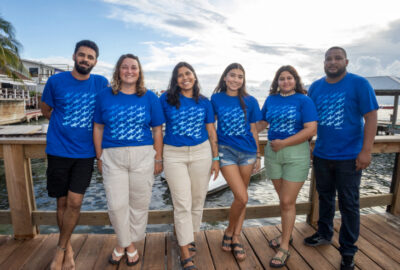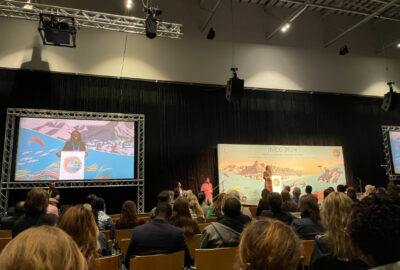Facilitating Respectful Knowledge Exchange Between Researchers and Fishers
MCAF Project Leader Daniela Font reflects on her field experience in Argentina

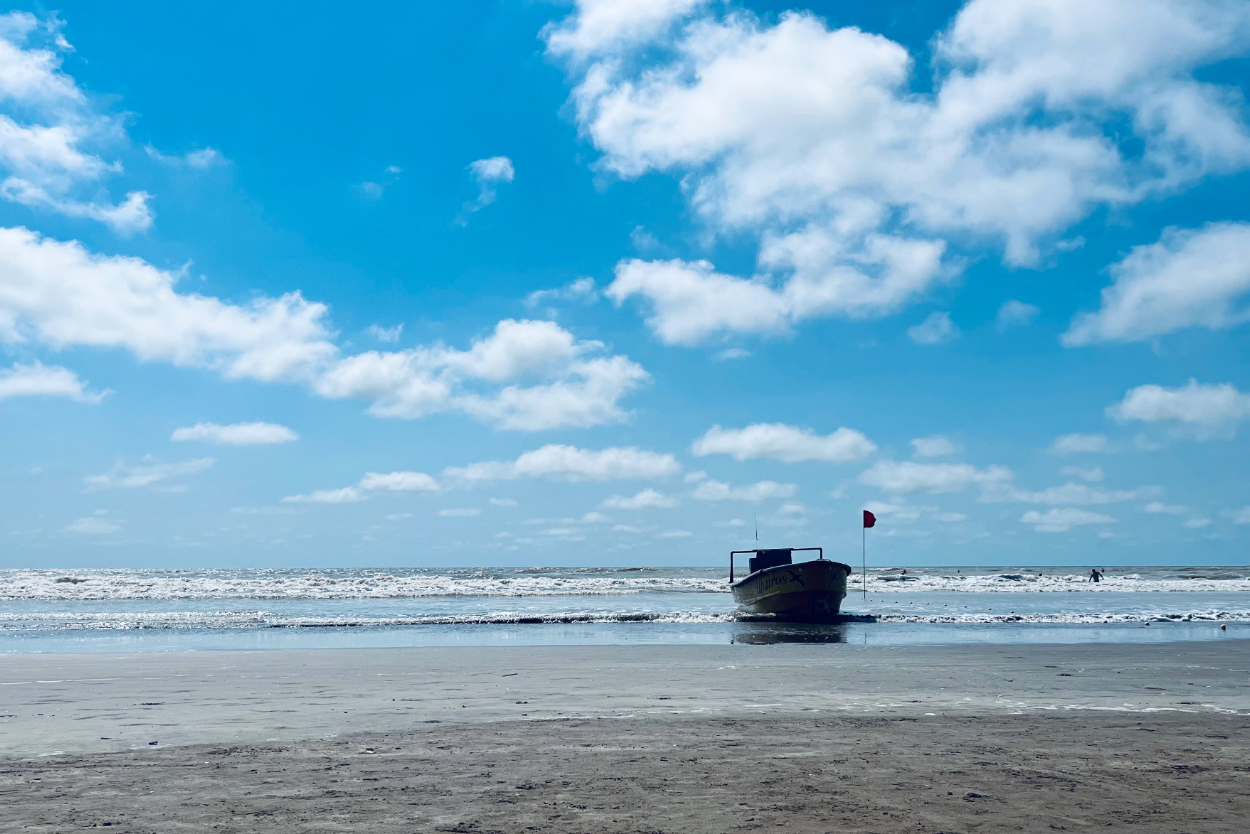
This post is one of a series on projects supported by the New England Aquarium’s Marine Conservation Action Fund (MCAF). Through MCAF, the Aquarium supports researchers, conservationists, and grassroots organizations around the world as they work to address the most challenging problems facing the ocean.
By Daniela Font
As a master’s student in the Coastal Science and Policy Program (CSP) at the University of California Santa Cruz (UCSC), I undertook a capstone project to study poorly known aspects of sea turtle bycatch in northern Argentina, including fishers’ experiences. I incorporated interviews with artisanal fishers and reviewed literature on how to practice conservation science through integrative approaches. To conduct field interviews, I dedicated three months to visiting fishers from the Buenos Aires coast in Argentina, working in the Southwestern Atlantic Ocean. While this may seem like an adequate amount of time for conducting my research, this experience taught me about the importance of slowing down and that some processes cannot be rushed. I came out of this fieldwork experience with more questions than answers. Some of them are: How can we facilitate the respectful exchange of knowledge between researchers and fishers? How can we ensure reciprocity? Here, I hope to share some experiences and thoughts that came up while being a student working with fishing communities for the first time.
Slowing down
At my first destination, dilapidated wooden wharves compose an informal port from where fishers operate. Here, they also do maintenance on their boats and gears before and after going out to sea. I remember how quiet it was, a setting that allowed me to spend the first days observing the place and activities without talking to anyone. It took me a while to find enough confidence to approach fishers; I felt insecure and afraid, thinking of how they were going to take the project ideas and intentions I had to share. Even though, in many cases, I was introduced to them by someone they knew, reaching out and introducing myself was always the hardest part. So, not surprisingly, the number of fishers I aspired to reach and the types of questions I intended to ask shifted during this period. This experience led me to take a step back from “the academic process” with a tight timeline and rigid objectives to contemplate others’ time and pace. In the field, time passes by differently, and it became a good exercise to value being quiet, being present, chatting, and sharing. If I planned three interviews for a day but got immersed in the first one, it was worth postponing the rest.
With time it became easier to feel comfortable talking and sharing experiences with fishers; they were always kind and respectful. I remember my last day in the field, sitting inside a small cabin with four fishers chatting, laughing, and sharing mate, a traditional hot beverage from Argentina.
Prior to arriving in the communities, I had designed a 29-question semi-structured interview guide, but I ended up never asking questions in order. What is more, only a couple of times could I ask or talk about all the questions I designed. This happened for numerous reasons, including choosing to dedicate more attention to emergent topics that fishers wanted to share. Regarding the bycatch of sea turtles, fishers openly mentioned being afraid to report real numbers of captured animals or finding dead animals in their nets. This is an example of a situation where one should prioritize not sharing numbers unless fishers specifically agreed on this information to be included in a report. The way we navigate these kinds of situations makes a difference when building relationships and future engagements with the community. Through these interactions, I learned the importance of treating the information I received with respect and care.
Navigating trust
Following the required protocols at UCSC, I took training courses on human subjects research and international research. My fieldwork study needed to be approved through a thorough application process by the Institutional Review Board (IRB). As part of this process, I was required to incorporate oral informed consent at the beginning of my interview to provide information on my affiliation (UCSC), the purpose of the research, the expectations of subjects who participated in the research, and the voluntary nature of the study. Although this procedure is required to protect participants in human subject research, there are different and culturally sensitive ways of gaining consent. This strict protocol turned out to be disconnected from the practical reality I was facing; the fact is that fishers are not going to share any information that would make them feel uncomfortable or unsafe, no matter what I articulated in an informed consent agreement. Even more, I found that sharing this consent information after introducing myself could jeopardize the interview and their trust. I navigated trust with participants by being honest and transparent and securing their names and identities as an ongoing process while spending time with them.
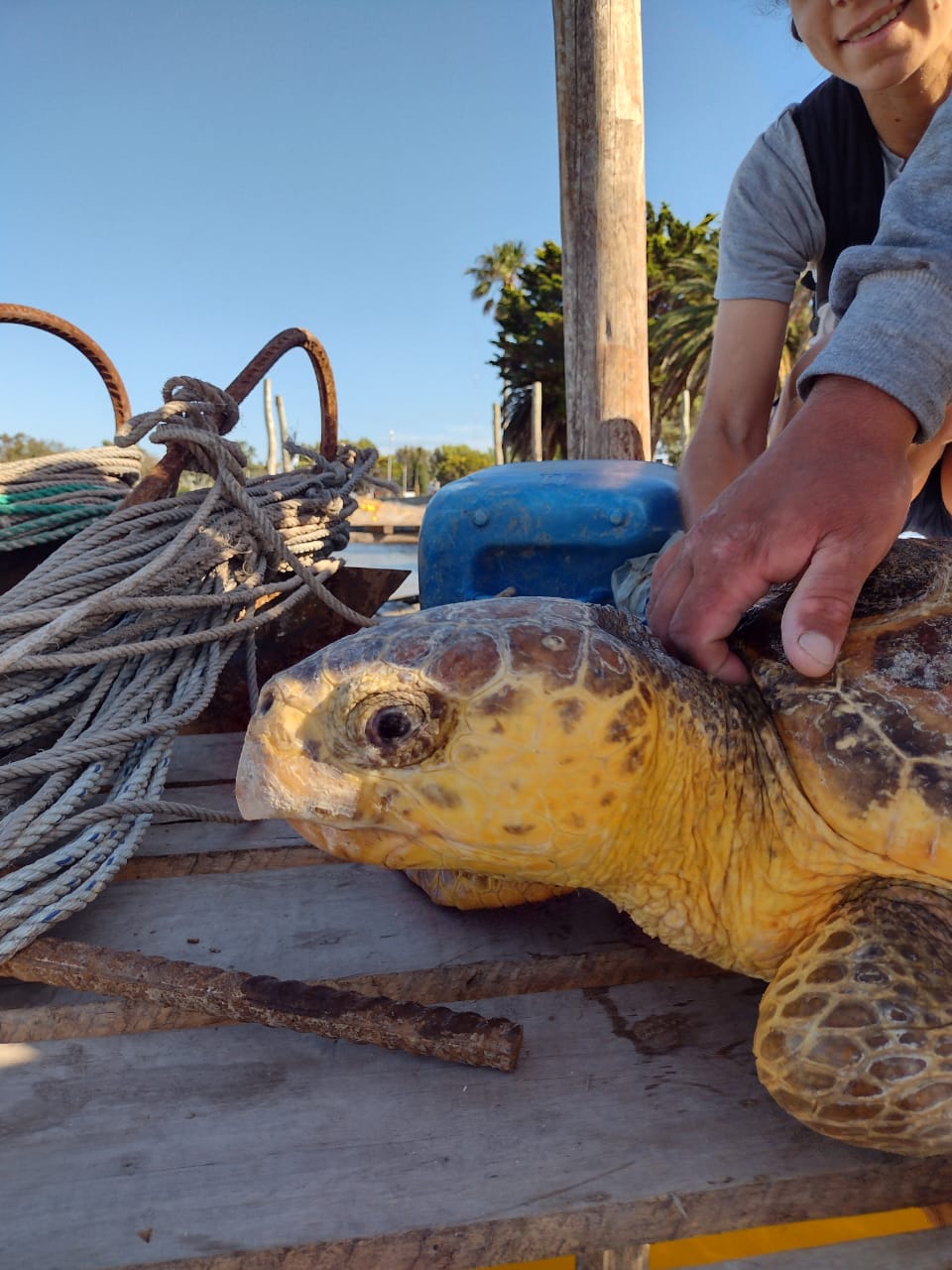
Understanding reflexivity and positionality
As an undergraduate student aiming to work in biodiversity conservation, I was not taught about collaborative practices between researchers and communities. However, while in the CSP program, I learned about underpinning concepts such as reflexivity –“understanding the role of the researcher in the specific social context, including [their] demographic position” (Langhout 2006)– which leads to being aware that traveling to the field to conduct research and engage with communities is a privilege. This is a commonality for all researchers, so it becomes critical that we recognize and reflect on the effect the researcher is having on local people and the research and vice versa (Bourdieu 1999). Another essential concept is positionality –conceiving other realities and constantly seeking out our own subjectivity–which highlighted the responsibility to acknowledge my positionality and my privilege as a white female graduate student doing research in a high-level educational institution in the US and that I come from a very exclusive education system (both in Buenos Aires and in California). Although not an easy job, seeking to incorporate these concepts early in a conservation career will allow us to actively practice them before, during, and after community visits in the field (Britttain et al. 2020, Singleton et al. 2022).
Incorporating other narratives in research
These reflections are based on my own experiences, so my intent here is to invite readers to question themselves and to read about and evaluate these concepts as part of their own research process. I did learn that, as scientists and biologists, we need to explore other narratives, discourses, and disciplines to better understand and question our practices. How do we challenge our position and privilege? I believe, at the very minimum, it should be with respect, humanity, transparency, reflexivity, and time. Time to listen, time to be there, time to understand other realities. In my experience, people (fishers, in this case) are tired of being perceived as the problem; they want to be part of the solution and they want to be encouraged. I want to share a quote from one of the speakers at a CSP Seminar, Colette Pichon Battle, that illustrates this idea better than I can: “The best thing you can do in community is not be another extractive force, another dominating force, but instead be human. (…) People are not looking for expertise, they are looking for honor, for love, for respect.”
In closing, the interviews and conversations I shared with the fishers contributed to very valuable information: I learned about fisheries characteristics and different fishing practices in the three regions I visited; I was told about experiences with sea turtle bycatch and other marine animal bycatch and how these events impact the time and work of the fishers and even damage their nets; and I am closer to understanding fishers’ concerns and challenges around their activity, like facing flawed regulations and a lack of support from the government.
Overall, this research lays the foundation for collaborations with fishers in the near future to tackle long-term sea turtle conservation, incorporating a reciprocal and respectful exchange of knowledge and needs with local communities.
Acknowledgements
The Coastal Science and Policy program represents an amazing journey in my career that facilitated this project. My fieldwork and this reflection would not have been possible without the participation and openness of the fishing communities. I want to acknowledge the kindness, collaboration, and mentorship of my co-advisors from CSP, Elena Finkbeiner and Katherine Seto, and my project partner, Victoria González Carman. I appreciate the funding support of the New England Aquarium through the Marine Conservation Action Fund, the State of the World’s Sea Turtles Program, and the Graduate Dean’s Research Travel Grant through UCSC. Last but not least, many thanks to Anne Kapuscinski and Sarah Eminhizer for their support and encouragement, and to Holly Rindge for her thoughtful insights.

